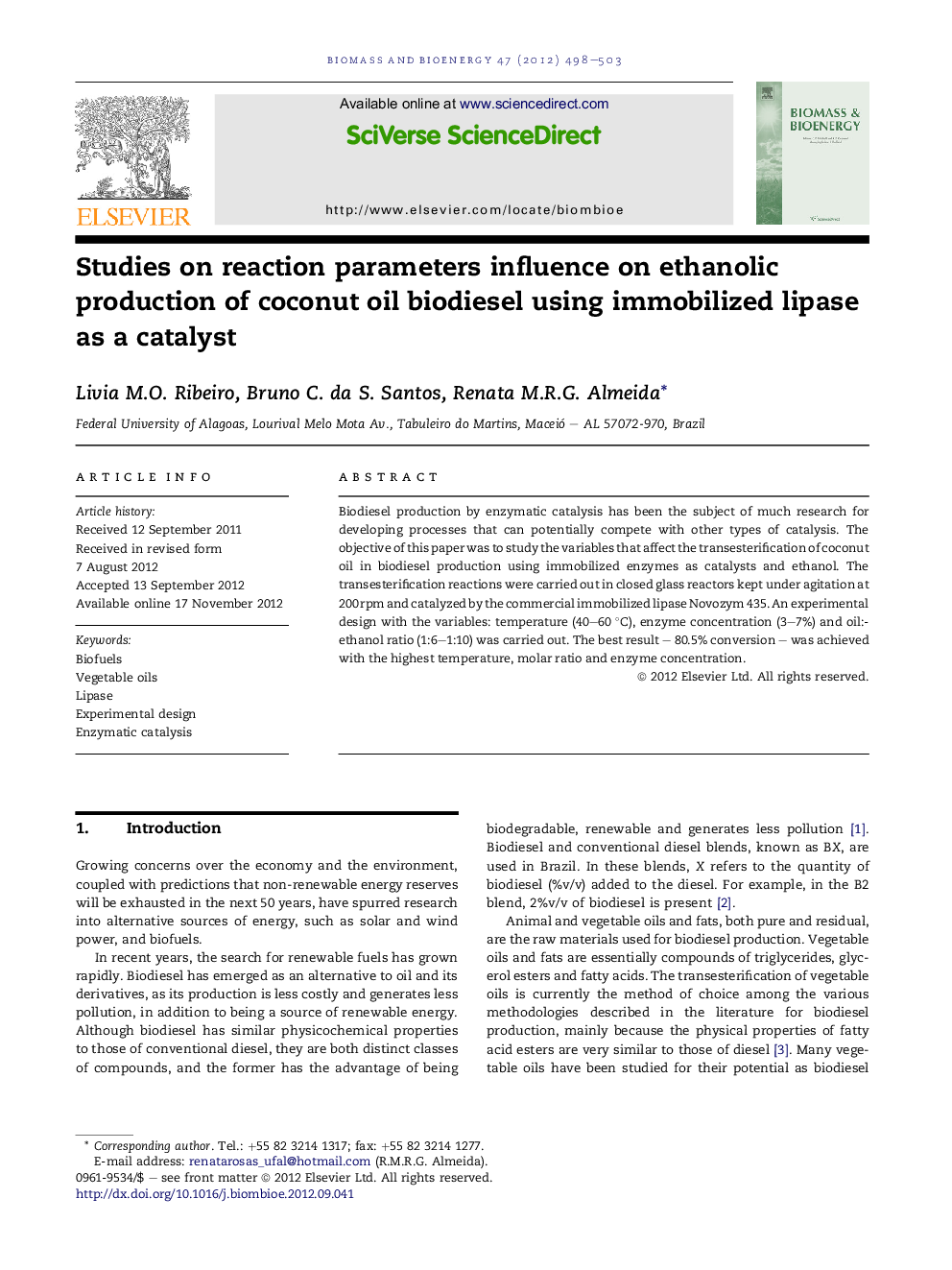| Article ID | Journal | Published Year | Pages | File Type |
|---|---|---|---|---|
| 677307 | Biomass and Bioenergy | 2012 | 6 Pages |
Biodiesel production by enzymatic catalysis has been the subject of much research for developing processes that can potentially compete with other types of catalysis. The objective of this paper was to study the variables that affect the transesterification of coconut oil in biodiesel production using immobilized enzymes as catalysts and ethanol. The transesterification reactions were carried out in closed glass reactors kept under agitation at 200 rpm and catalyzed by the commercial immobilized lipase Novozym 435. An experimental design with the variables: temperature (40–60 °C), enzyme concentration (3–7%) and oil:ethanol ratio (1:6–1:10) was carried out. The best result – 80.5% conversion – was achieved with the highest temperature, molar ratio and enzyme concentration.
► Coconut oil was used to produce biodiesel by enzymatic catalysis. ► Variables that interfere in the ethanolic transesterification were studied. ► An experimental design studied: temperature; lipase concentration; oil:ethanol ratio. ► The best result was 80.5% of biodiesel under 60 °C, 7% enzyme and 1:10 of oil:ethanol.
